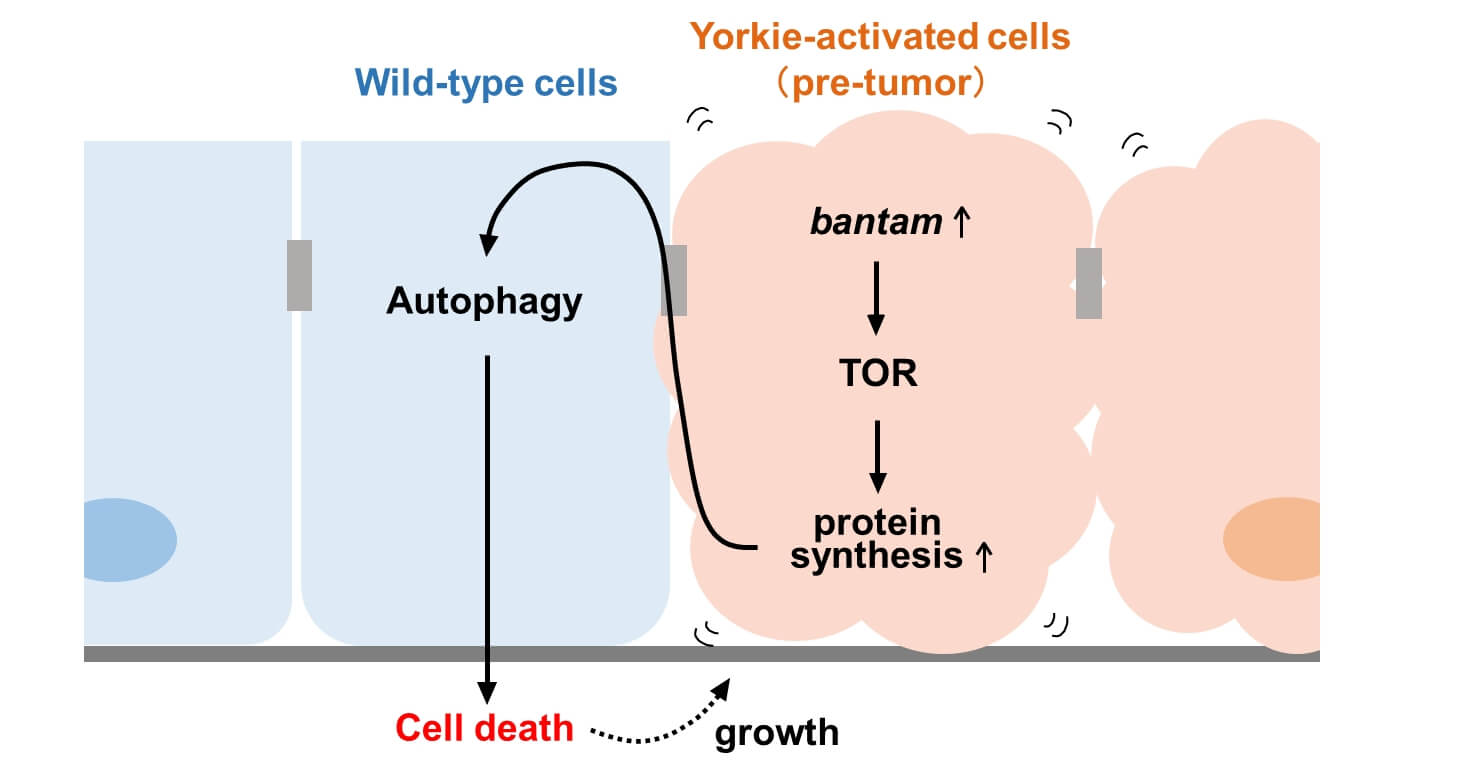Dissecting the mechanism by which oncogenic cells eliminate normal cells ― A possible application for a new anti-cancer strategy focusing on tumor supercompetition ―
- Professor IGAKI, Tatsushi
- Genetics
Some types of oncogenic cells are known to induce cell death in surrounding normal cells, which is called “supercompetition”. However, the mechanism of supercompetition and its role in tumorigenesis remained unknown. In Drosophila epithelium, cells activating oncoprotein Yorkie (a YAP homolog) become supercompetitor that eliminate neighboring wild-type cells.
A research group of Tatsushi Igaki and Rina Nagata (Graduate School of Biostudies, Kyoto University), collaborating with Shizue Ohsawa, (Nagoya University), Shu Kondo (Tokyo University of Science), and Kuniaki Saito (National Institute of Genetics), dissected the mechanism of supercompetition using the Drosophila model system. They found that Yorkie-activated cells elevate TOR signaling via induction of microRNA bantam, which increases protein synthesis. The increased protein synthesis levels in oncogenic cells induces autophagy-mediated cell death in neighboring normal cells. Inhibition of autophagy in normal cells not only suppressed cell death but also suppressed tumorigenesis of oncogenic cells, suggesting that supercompetition plays an important role in tumorigenesis.
Since the molecules identified in the Drosophila system are conserved in humans, it can be applied for developing a new anti-cancer strategy focusing on tumor supercompetition.
This work was published online in “Current Biology” on February 7, 2022.

